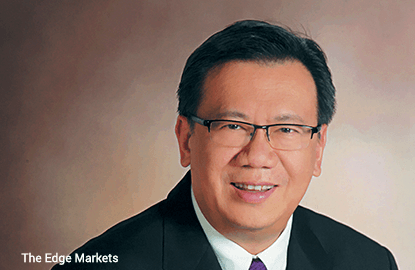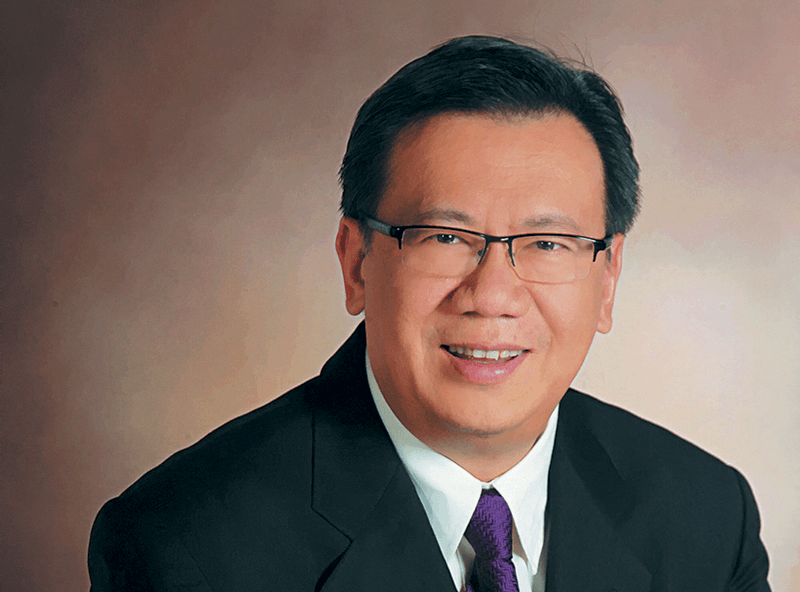
This article first appeared in Personal Wealth, The Edge Malaysia Weekly, on Feb 29 - March 6, 2016.

Concerned about the quality of education their children are receiving, an outdated public school system and policy flip-flopping over the past few years, many parents have opted to enrol their offspring in private schools or learning centres.
These alternative educational institutions have gained traction over the years. Private and international schools are mushrooming across the country following the removal of the 40% quota on local students for international schools in 2010.
A growing number of parents, however, are taking a different approach to their children’s education. Homeschooling and unschooling are quickly becoming trends.
Homeschooling, in its original form, attempts to duplicate the school system at home by using a timetable and curriculum. Unschooling, on the other hand, is a highly unstructured home-based, child-led learning process that does not use schedules, homework, textbooks, tests or rules.
Proponents of unschooling say this process allows the children to learn what they are interested in. It also allows parents to save thousands of dollars by not having to pay the fees associated with private and international schools or homeschooling costs. Moreover, they are able to design a personalised learning programme that suits their children’s needs and interests.
The term “unschooling” was coined by American educator John Holt in the 1970s, as he progressed from school reform to recognising that learning was hindered, without giving one the freedom to choose, and that children should learn in natural and spontaneous ways instead of a one-size-fits-all approach. While parents would still play a role in teaching their children the basics, such as reading and writing, the children would decide on the subjects and topics they would learn.
KV Soon and his wife Chong Wai Leng are currently unschooling their three children, aged 20, 19 and 11. Soon is the co-founder of Learning Beyond Schooling, a website aimed at encouraging and exploring alternatives in education.
Unschooling is a subset of homeschooling, he says. Homeschooling has evolved into a broad spectrum in the past few decades. At one end of the spectrum is a highly structured home-based learning programme that uses a particular syllabus or timetable — almost a duplicate of the schooling system at home.
“At the other end is a highly unstructured learning programme without a fixed plan, one that allows the children to choose what they want to learn. This is now known as unschooling, to differentiate it from the highly structured homeschooling,” Soon explains.
People have become used to the concept of having school hours, fixed curriculums, homework, teachers and grades. Soon says parents tend to be anxious when these elements are taken away. While education is usually associated with schools and curriculums, this has not always been the case.
“Learning in a school is an early 19th century concept, developed to support workers in the industrial revolution. But education started way before that. There had been centuries of knowledge education, and there were no schools back then,” Soon points out.
“People still learnt even when there was no school to go to. Learning is a natural process that happens anytime, anywhere.”
Patrick Farenga, the leading advocate of the modern homeschooling movement, gives an example of how children learn intuitively. “A young child’s interest in hot rods might lead him to study how an engine works, how and when a car is built and who built it. They learn when it makes sense for them to do so,” he says.
As for how many unschoolers are out there, Soon says the hard numbers are difficult to obtain as most governments do not collect such statistics while some only count it as a part of the homeschooling community.
Wong Jian Eu, an Oxford graduate, was a “hybrid homeschooler” — one who had been in school, left school and later, went back to school. He says self-learning is an important skill he acquired through homeschooling.
“My homeschooling experience was something in between structured and unstructured learning as my family used the Singapore syllabus as the main material, while the rest was chosen from other available syllabuses or resources. Learning was flexible and we did not use a fixed timetable,” he adds.
The 23-year-old went to a private school for two years (Year 1 and 2) before being pulled out of school to be homeschooled by his mother — at home and everywhere else. He enjoyed homeschooling very much as it was all free and easy, but time at Oxford was awesome too, Wong adds.
“My mom was not actively involved in teaching during my homeschooling time. Her role was more of coaching, giving us exposure to different topics and getting us resources to learn, such as books and other learning materials. We bought a lot of books and utilised libraries,” he recalls.
“It was quite the contrary to the famous misconception that homeschoolers are confined to the four walls and only focus on their studies. My sister and I did a lot of volunteering and outdoor activities back then. We spent time at Zoo Negara with the veterinarians and animals, visited museums, and did sports and community work.”
Applying for university can be a challenge for homeschoolers if they do not have proof of their academic level, so Wong enrolled at a learning centre when he was 15 to sit for the International General Certificate of Secondary Education before going on to do his A-levels at a private college. He was accepted into the University of Oxford to pursue a degree in history in 2012.
Wong points out that some of his homeschooled and unschooled friends sat for assessment tests such as the SAT (formerly known as Scholastic Aptitude Test) on their own and were accepted into universities in the US.
“Studying at university was quite challenging at the beginning as it required us to submit three long essays every two weeks. But as time went by, it became much easier. I also took up sports such as tennis and rowing in my free time,” he reminisces.
Wong also took part in the Oxford-Princeton exchange programme in 2013, where he studied in the US as an exchange student for a year. His homeschooling experience and personality helped him to settle into a new environment pretty quickly.
“I never had any problem making friends and socialising. I might be a little reserved at the beginning, but sooner or later, I would get along with people from different backgrounds,” he says, trying to reject the misperception that homeschoolers are bad at socialising.
Although many homeschoolers use the internet in their learning process, Wong says he prefers to read printed books because using the computer to look up information can come with a lot of distractions.
The recent graduate, who now works as a consultant at a multinational consulting firm, says he appreciates that homeschooling gave him the space to explore his interest in history in his early years. “Looking back, I would not have wanted to do it otherwise. If I have children in the future, I will do what my parents did for me — homeschool them with a personalised learning process,” he grins.
Save by subscribing to us for your print and/or digital copy.
P/S: The Edge is also available on Apple's AppStore and Androids' Google Play.